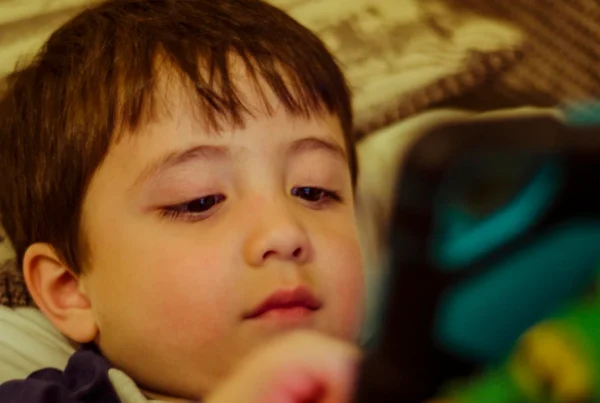For many Indonesian families, the idea of studying abroad is more than a dream; it’s a plan shaped by the desire to give their children broader perspectives and opportunities beyond what’s available locally. Whether it’s exposure to different cultures, access to world-class education, or preparation for a global career, international education holds strong appeal.
But as exciting as it sounds, the process can feel overwhelming at first. From researching universities to preparing documents and applying for visas, there’s a lot to navigate. This article will guide you through the key steps to help you and your child approach the journey with clarity and confidence.
How to Study Abroad: A Complete Checklist for Your Child’s International Education
Studying abroad requires careful preparation. Here is a complete checklist on how to study abroad, from choosing a country to applying for visas. Use these steps to plan your child’s international education smoothly.
1. Researching Destinations and Programs for International Students
When figuring out how to study abroad, your journey begins with research. Each country and university offers different academic programs, cultural experiences, and admission requirements.
Are you looking for a country with a strong STEM focus? Or perhaps a liberal arts education in a multicultural setting? Consider language, climate, tuition costs, and career opportunities post-graduation. Take time to explore rankings, program strengths, student testimonials, and visa policies.
2. Meeting Academic Requirements
Understanding how to study abroad also means knowing the academic benchmarks and tests required in your target country. Most will review a student’s GPA, course history, performance on standardized tests, and campus involvement.
Depending on the country, your child may need to take the SAT, ACT, or university-specific entrance exams. For English-speaking countries, proficiency tests like IELTS or TOEFL are essential. Knowing these requirements early will help your child plan and prepare strategically.
3. Preparing Application Materials
Learning how to study abroad involves more than meeting entry requirements; it’s also about presenting yourself well. College applications go beyond filling out forms. Most universities ask for personal essays or statements of purpose that reflect a student’s goals and values.
Letters of recommendation from teachers or counselors, academic transcripts, and extracurricular records also play a vital role. These documents take time to prepare well, so it’s important to start early and review everything thoroughly.
4. Begin Your Financial Plan
Studying abroad can be a significant investment, so it’s important to build a solid financial plan. Start by estimating your total expenses, including tuition, living costs, travel, and emergency funds. To support this plan, explore different funding options such as personal savings, family support, part-time work (if allowed), and scholarships or grants.
Scholarships remain an important part of financial planning. Many are merit-based, while others consider financial need, leadership experience, or specific talents. Research the opportunities offered by universities, governments, and private organizations to strengthen your overall funding plan and ensure you can study abroad with confidence.
5. Navigating the Student Visa Application Process
Each country has its own visa process, which can include interviews, financial proof, and detailed documentation. Make sure you understand the timelines and gather the necessary paperwork. Start early, stay organized, and check official embassy websites or consult a professional for guidance.
Read More: Key Benefits of AI in Education: How Technology is Transforming Learning
6. Planning Logistics
Logistical planning is just as important as academic preparation when it comes to studying abroad. Where will your child live? What health insurance do they need? What’s the best time to book flights?
These practical details ensure your child transitions smoothly to life in a new country. Research housing options, whether it is on-campus or private rentals, and understand the support services available for international students.
7. Gaining Wisdom and Expanding Horizons
Studying abroad is not just about academics; it’s a chance for students to grow in character, independence, and cultural understanding. As Proverbs 18:15 reminds us, “The heart of the discerning acquires knowledge, for the ears of the wise seek it out.” This pursuit of knowledge and global exposure helps students mature into thoughtful, adaptable, and compassionate leaders.
How Parents Can Support Their Child’s Journey
Parents play a critical role in the process of studying abroad. Here are some ways you can offer support:
1. Encourage Early Planning
Help your child prepare as early as middle or high school. This gives them time to build a strong academic record, set goals, and explore interests across different subjects and courses.
2. Provide Emotional Support
Navigating unfamiliar systems in another country can be overwhelming. Be a steady source of encouragement and emotional support, especially when things get tough, whether it’s dealing with tuition fees, preparing for the student visa, or adapting to a new culture.
3. Help With Organization and Deadlines
Assist your child in managing timelines, tracking application tasks, and staying on top of requirements. The study abroad process often involves managing multiple university applications, visa paperwork, and scholarship forms, all with strict deadlines.
Read More: School Life Hacks: Effective Self-Management Skills for Students
4. Promote Opportunities to Build a Global Network
Encourage your child to connect with other students who have studied abroad or are currently attending their host university. Building a global network enriches your child’s study abroad experience and opens doors to future career opportunities, cross-cultural friendships, and insights into life beyond their comfort zone.
5. Choose a School That Offers Strong Guidance
Enroll your child in a school that provides university counseling services. At Sekolah Pelita Harapan (SPH), students receive personalized guidance in selecting universities, preparing for applications, and understanding scholarships and student visa requirements. Our graduates have been accepted into leading universities worldwide, including institutions with strong global networks and exposure to different cultures.
Prepare Your Child to Take Steps Toward Studying Abroad with SPH
With clear goals, diligent preparation, and strong support, the dream of studying abroad can become a reality. It’s not just about getting into a top university; it’s about preparing your child to thrive in a diverse and ever-changing world.
At Sekolah Pelita Harapan, we are dedicated to helping students discover their God-given purpose and potential locally and globally. We offer both the Cambridge International and International Baccalaureate (IB) programmes to build strong academic foundations, foster critical thinking, and develop global awareness within a Christ-centered learning environment.
Our comprehensive university and career counseling begins as early as Grade 10, complementing both the Cambridge International and IB frameworks to help students explore their passions, identify their strengths, and choose academic subjects aligned with their future goals. From building a strong portfolio to navigating university applications, essays, and interviews, our experienced counselors walk alongside students every step of the way.
Through this integrated approach, we prepare students to take confident steps toward studying abroad and leading meaningful lives across cultures and countries.
Ready to see how the Cambridge International and International Baccalaureate programs at SPH can shape your child’s future? Visit Sekolah Pelita Harapan (SPH) to learn more about how our programs support your child’s growth!









